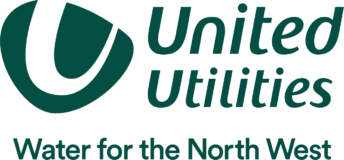*The information on this page has been provided by the project team which consists of the following partners.




Click here to return to the Unpave the Way homepage
Unpave the Way is an innovative and collaborative project between the North West Regional Flood and Coastal Committee (North West Regional Flood and Coastal Committee | The Flood Hub), the Environment Agency, United Utilities, and Lancashire County Council. Unpave the Way seeks to address and raise awareness of the impacts of an increasing national trend of householders choosing to create impermeable front gardens to accommodate motor vehicles and other needs.
This increasing trend is contributing to flood risk and challenges for surface water management on both a localised and catchment scale. Unpave the Way aims to educate and inspire householders to include permeable driveways, consider the use of sustainable drainage components (SuDS), collect and store rainwater for reuse, and to encourage climate resilient planting schemes into their front gardens.
Impermeable front gardens are gardens where householders have replaced greenspace, such as flower beds and natural lawns, with hard surfacing i.e., impermeable tarmac which prevents rainwater from being absorbed by planting and draining through soil (infiltration), typically to create off street parking.
In 2015, 1 in 4 front gardens in the UK were completely paved over (RHS – Why we all need Greening Grey Britain).
Householders may not think that paving one front garden would make a difference but as the uptake of impermeable front gardens increases there is cumulative pressure being placed on highway drainage and sewer infrastructure, as well as watercourses, which leads to more incidences of flooding. This is due to impermeable front gardens increasing the volume and speed of surface water run off during rainfall, meaning that more surface water, that would otherwise naturally be soaked up by greenspaces, is being discharged into these systems. This can increase flood risk for householders, neighbours, and communities.
The removal of greenspace to accommodate hardstanding means that there are no plants to capture and filter pollutants within surface water runoff. This can cause an increase in pollutant load within surface water run off which then flows into and pollutes our watercourses, waterbodies, and coasts which has detrimental impacts on the health of people and wildlife.
The removal of planting within front gardens means the removal of habitats and feeding grounds for wildlife (e.g., bees, butterflies, birds, hedgehogs), leading to species decline. Front gardens are an important asset to biodiversity and cumulatively make a significant contribution to Biodiversity Net Gain.
The removal of greenspace and increase in hardstanding surrounding homes, increases air temperature, making homes uncomfortable for householders and wildlife during the summer months.
For more information on the impacts please visit: Why we all need Greening Grey Britain (rhs.org.uk)
Gardening was once considered a valued pastime for householders as they strove for the ultimate kerb appeal for their homes. However front garden maintenance is increasingly viewed as an added chore within our busy modern lives.
But it doesn’t have to be this way. Visit our sustainable solutions page to learn how you can keep your front garden whilst reducing the need for maintenance.
The proportion of households without a car has fallen from 48% in 1971 (based on the Census) to 22% in 2021.
There have been long-term increases in the proportion of households with access to more than one car since 1971, with 33% of households having two or more cars in 2021 compared to 8% in 1971.
Furthermore, the average width of new cars has expanded from 177.8cm in 2018 to 180.3cm in 2023, which is increasing demand for off-street parking (Transport & Environment, 2024).
Source: Department for Transport – National Travel Survey 2021: Household car availability and trends in car trips. National Travel Survey 2021: Household car availability and trends in car trips – GOV.UK (www.gov.uk)
Whilst the uptake of electric cars is a positive contribution to reducing carbon and other harmful emissions in our atmosphere, it is also increasing the need for driveways so that householders can access charging points.
Data from EO Charging discovered that 49% of 2,000 drivers would remove their front garden in order to make charging their electric vehicle easier (RAC, 2023).
Off street parking is considered an attractive proposition for householders as it increases property value and reduces car insurance costs.
Currently there is limited awareness amongst householders, supplies, and contractors of the requirement for planning permission for installing impermeable areas in their front gardens covering more than 5m2. This planning requirement has been in place since 1 October 2008.
For more information please visit: Permeable surfacing of front gardens: guidance – GOV.UK (www.gov.uk)
Householders may be unaware that increasing impermeable hardstanding increases surface water run off during rainfall which can put themselves and their neighbours at increased flood risk and collectively increase flood risk within their community.
Many householders, suppliers, and contractors are unaware of the multitude of permeable alternatives available of their favourite paving products. Visit our Sustainable Solutions page for more info.
*The information on this page has been provided by the Environment Agency.